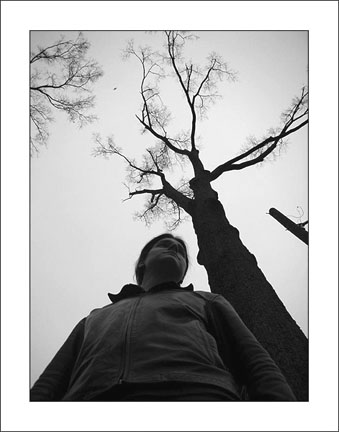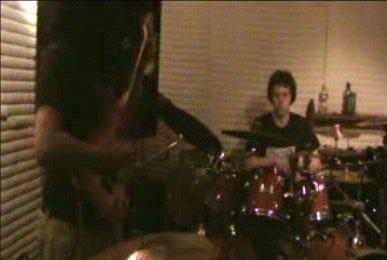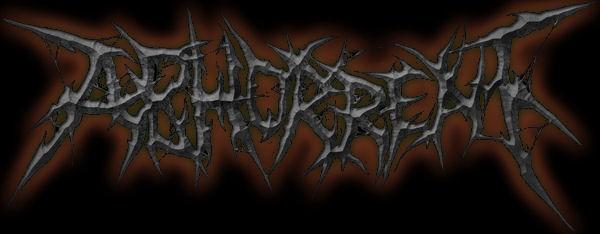This site pioneered metal journalism using dial-up and later online means for one simple reason: no wasted paper. It was apparent by 1984 that computers would soon become household and business appliances, as indispensible as copy machines and perhaps more numerous. The logic went this way: if we’re going to have them anyway, distributing information through computer networks means no dead trees, no additional waste, and possibly a more efficient distribution method.
Twenty years later, one of the debates still under mainstream radar is that of MP3 piracy. It touches all aspects of our government and society: is it theft to copy MP3s? If it is, do we want the Nanny State peering over our shoulders to see what we’re copying? Should we trust people to buy what they download, or try copy protection, just as we did with software and eventually abandoned? Who should watch for violations? Who watches the watchers? And finally: can artists get paid in an age beyond material scarcity, when a CD can be downloaded in minutes?
Mike Riddick, a pioneer in metal artistry in his own right, has tried the dangerous new waters of this controversial issue by launching Metalhit.com, a promotional firm/label that will send reviewers MP3s of CDs. Since promotional CDs arrive in bunches and most commonly go to the trash the same way, this is a green and metal way of forging past barriers to see the potential of this new form. We got in a few words with Mike about the future of digital media and metal.

When did you start metalhit.com, and what realization guided you toward the idea of doing an mp3-based promotion service/label?
I launched Metalhit.com in January 2008. The idea was born from a suggestion my wife made while discussing with her the status of my other (traditional) label, The Fossil Dungeon. I had always wanted to operate a metal label, publishing bands I enjoy, and this was an innovative way to do it.
Why an mp3-based promotion firm, and did you know about/use mp3s before starting the firm?
My other label, The Fossil Dungeon, had been publishing CDs while coincidentally publishing our releases in the digital market for a while so it was something I was acquainted with. While I still personally prefer CDs and Vinyls for my own entertainment, I do use Mp3s as well. One primary reason I opted to go exclusively digital with both of my labels was the fact that consumer markets are driven by convenience. Purchasing music online is far more convenient for the fan than going to the store, especially when dealing with music that’s not readily accessible in stores to begin with! Another primary reason I decided to go with Mp3s was the expense factor. I and the bands only make money when their music sells so we do not need to be concerned about throwing lots of money down upfront to create inventory and then hope that inventory sells. People profit when product moves and that business concept attracted me. Furthermore, the money I would usually invest in manufacturing can now go to marketing and promoting our artists in a better way. Overall, it’s a win-win situation and that makes for a good business. Operating my traditional CD/Vinyl-based label was a financial struggle and caused me to suffer losses for 5 years straight. As a digital label and distributor, the business model is more sound and more effective overall.
It seems several well-known labels have been receptive, and the metal press has been positive. Is this so, and what has helped you become accepted?
I am aware that digital sales are increasing rather rapidly on a year-to-year basis. I believe the statistic runs around 15% whilst CD sales are diminishing about 5% each year. The numbers tell me that people are getting comfortable with the digital format and I trust that within 10 years the industry will be 100% digital. I’m pleased the metal scene is embracing this change.
Major labels argue that allowing mp3s at all encourages theft and copying, but others point out that those who download mp3s are generally those without the money or inclination to buy the product anyway. How do you think mp3s can be used to promote music, and can it be done so without losing money for artists?
I don’t think artists will see too dramatic of a shift in the bootlegging of their work than in previous periods of music. Granted, it is easier to move music illegally these days by sharing files versus dubbing a cassette tape or ripping and burning a CD. However, overall I think that if a fan values a band’s music enough, they’ll pay for it, especially with the knowledge that they’re directly supporting the artists they appreciate. Even if music moves freely among music fans, it still serves as good promotion. If a music fan didn’t pay for an album they own, but they like the band, they’ll probably go see them at a show or perhaps order some merchandise online. The band will profit this way, whereas if their music hadn’t been freely shared, they would’ve lost out on this fan. While a band and label would prefer for the fan to pay for music legitimately, I don’t think the random occasions of this happening will ultimately cripple the industry. Consider libraries, for example. Did borrowing books freely ever put the book publishing industry out of business? Nope.
Democracy is cancerous, and bureaus are its cancer. A bureau takes root anywhere in the state, turns malignant like the Narcotic Bureau, and grows and grows, always reproducing more of its own kind, until it chokes the host if not controlled or excised. Bureaus cannot live without a host, being true parasitic organisms. (A cooperative on the other hand CAN live without the state. That is the road to follow. The building up of independent units to meet the needs of people who participate in the functioning of the unit. A bureau operates on the opposite principle of inventing needs to justify the existence.) Bureaucracy is wrong as cancer, a turning away from the human evolutionary direction of infinite potentials and differentiation and independent spontaneous action, to the complete parasitism of a virus.
– William S. Burroughs, Naked Lunch
If mp3s are accepted as a means of sending promos, or as a way of selling music, it may force restructuring upon the industry. What do you think the music industry of the future will look like?
Labels are already jumping on the convenience of digital music. Apart from my label submitting promos digitally, I’m aware many of the majors are doing this as well. I think the industry will be much different in the future than its current state. For example, music stores will be a thing of the past. For example, indie shops situated around college campuses are already disappearing because the younger generation has gone completely digital. Music will be entirely digital, purchased from people’s home computers and portable devices. The technology for this is already in place and is growing more popular each day. I think labels will market bands in traditional ways, though leaning more toward multi-media avenues on the web. For example, I don’t think print magazines dealing with music will be around much longer though I do think they will outlast CDs.
Have you encountered resistance from labels and bands in your plan to send out mp3s to reviewers and, if so, what were the common objections? How did you resolve them?
Yes, I have encountered music reviewers and radio show DJs that have chosen not to accept digital promos. For most it is simply a matter of comfort. They aren’t yet comfortable with this medium and they still prefer things the traditional way. There’s absolutely nothing wrong with this and many of the labels still cater to these individuals by providing them with promo CDs, etc. For a lot of music journalists, their primary incentive for writing reviews is the fact they get to have tangible CDs as a perk for their work. While my music is still “free” to them, the reward factor isn’t present because there is nothing entirely tangible given to them. Some people prefer to hold something rather than have it as a file on their computer. This is perhaps the only factor slowing the transition into the digital age of music, but as technology increases and the devices used to play CDs become obsolete, the transition will be inevitable. While this can hamper my marketing efforts, I contrarily have marketing partners that love digital music and embrace it happily. There are enough promoters out there to still run an effective marketing campaign, exclusively digital!
Some argue that digital rights management (DRM), which is any of a number of encryption schemes to prevent unauthorized copying or uploading of those mp3s, should be applied to any mp3s made of original works. Do you believe this is an effective strategy?
DRM serves nothing but an inconvenience to the fan. It limits the product a fan is purchasing and that is just bad business. Who wants to buy music that will work only on one device when there are presently multiple devices to play music on in the marketplace? People will always find a way bootleg music and DRM is no exception so I find it to be a waste of time on the industry’s part. A lot of online music retailers, like eMusic, for example, offer downloads DRM-free. Likewise, the Metalhit.com Mp3 store is DRM-free!
Your work acknowledges a shift, through iTunes and other vectors, in the music industry toward accepting digital technology, including its ability to make a copy of anything already digitized. Some see the market as moving from selling a product, in which the physical form and information it contained were bonded inextricably, to selling a license to an abstract service, which is the ability to play or view a work, regardless of form. How will this affect how musicians, labels and promoters get paid?
It’s interesting how you describe this shift and it’s quite accurate. I believe labels and musicians will have to simply accept this transition and recognize that the future of media will be much more amorphous, not simply an individual unit. One thing I think we will see a rise in is the advent of the single. Previously, singles were used to leverage the sale of a full album. However, now fans have the ability to cherry-pick the songs they want and not have to purchase the filler that used to occupy full length albums. In fact, the idea of a full length album will become vague as this medium becomes more popular. It used to be that 45 minutes of music made up an album when that was all you could squeeze onto a record. CDs increased this expectation to a full hour. With digital music, timing is not an issue and people will simply purchase what they enjoy, song-by-song. As for musicians and labels being paid.I think it will still be the same, using a royalty system. What I do anticipate, however, is that artists will potentially make more money from their music, either handling it independently without a label, or through labels that pay better royalties because when labels go exclusively digital they won’t have many of the same middle men and manufacturing expenses that swamp the traditional industry.
 Has metalhit.com helped you promote and/or sell any of your own works? Were the results comparable to conventional music industry models? (N.B. I recognize that you, like many other underground musicians, may not be in this field “for the profit,” but I think we should recognize that for an artist to keep existing, the band must at least not lose money, and it needs to make money for those in the support infrastructure of labels, distros, venues, magazines, etc. — “selling out” is a different story, because even if Metallica’s black album had only sold six copies, it would still be a sell-out; this is not a question about the ethics of profit, in other words, although feel free to throw in any ideas you have there)
Has metalhit.com helped you promote and/or sell any of your own works? Were the results comparable to conventional music industry models? (N.B. I recognize that you, like many other underground musicians, may not be in this field “for the profit,” but I think we should recognize that for an artist to keep existing, the band must at least not lose money, and it needs to make money for those in the support infrastructure of labels, distros, venues, magazines, etc. — “selling out” is a different story, because even if Metallica’s black album had only sold six copies, it would still be a sell-out; this is not a question about the ethics of profit, in other words, although feel free to throw in any ideas you have there)
I have not yet published any of my own music through Metalhit yet, though I have been publishing my bands in the digital market through my other label for a while now. While those albums were published on CD as well, I have been able to see how digital sales compare to CD sales. CDs sales are definitely more prevalent in the marketplace today, though when you compare the expenses involved in each of these avenues, I find the digital medium more appealing, even if it only makes up a small sales margin right now. However, I see this increasing each year so it only seems logical to pursue digital in its entirety.
The idea of metalhit.com appeals to many in black metal because, as people who believe in an integral, parallel bond between spirituality, intelligence, nature and the organization of matter, they see unnecessary production of physical waste (in the form of physical promos that generally get thrown out) as destructive to nature. Was this part of your motivation behind metalhit.com, and have you any idea how effective you have been toward reducing waste?
I hadn’t considered this proponent of the psychology behind some black metal fans. If this is the case, then my label should prove favorable. In contrast, I would’ve assumed fans of black metal to be the most resistant to embracing a new medium since black metal carries with it a loyalty to older metal traditions and vinyl. In any case, the amount of physical waste reduced by this change in my operation has been dramatic. It’s largely a paperless business. The only paper used is for contracts, filed work and reproduced fliers.
How has the presence of mp3s changed the underground? Is it better to fight change that seems contrary, or to accept it and try to alter it to support original objectives?
Mp3s have significantly changed the underground. With the advent of the Internet, the connectivity between fans of music all across the world has increased tremendously. In the early 90’s and prior, the worldwide network of the underground metal scene was facilitated by postal mail and it would take weeks to communicate with others around the world. Now that the Internet is here, not only has it made underground more accessible, but it’s also given leverage to smaller bands and labels in the sense that they can now more readily compete with larger labels because both the independents and majors have access to resources only previously reserved for major labels.
What kind of journalistic outlets does metalhit.com service, and have you seen a rise in digital-format outlets, like blogs and twitter streams and the like?
We spread our bands as well as those from our partner labels as intensely as possible. We’ll go for traditional magazines and radio shows to online programs, blogs, webzines and the like. I think there is a definite rise in digital-format outlets for promotion, particularly among the younger generation of extreme metal fans.
If you were an up-and-coming death metal or black metal band today, how would you use digital media to promote your band?
Take advantage of it! Setting up a MySpace page, has been a relatively effective method for unknown artists to start marketing their work. Online advertising is another avenue for bands with more money to promote with and simply networking with labels, fans and distributors over the Internet is an excellent way to start making your work more known. The benefit of the Internet is that you can achieve a pretty decent amount of exposure with little expense involved. However, as with any successful artists, whether mainstream or underground, originality, hard work and persistent effort will yield results.
Thanks to Metalhit.com for this inspiring interview.
If we ask a man who is exploiting a commons to desist “in the name of conscience,” what are we saying to him? What does he hear?–not only at the moment but also in the wee small hours of the night when, half asleep, he remembers not merely the words we used but also the nonverbal communication cues we gave him unawares? Sooner or later, consciously or subconsciously, he senses that he has received two communications, and that they are contradictory: (i) (intended communication) “If you don’t do as we ask, we will openly condemn you for not acting like a responsible citizen”; (ii) (the unintended communication) “If you do behave as we ask, we will secretly condemn you for a simpleton who can be shamed into standing aside while the rest of us exploit the commons.”
– Garrett Hardin, The Tragedy of the Commons
No Comments


 Has metalhit.com helped you promote and/or sell any of your own works? Were the results comparable to conventional music industry models? (N.B. I recognize that you, like many other underground musicians, may not be in this field “for the profit,” but I think we should recognize that for an artist to keep existing, the band must at least not lose money, and it needs to make money for those in the support infrastructure of labels, distros, venues, magazines, etc. — “selling out” is a different story, because even if Metallica’s black album had only sold six copies, it would still be a sell-out; this is not a question about the ethics of profit, in other words, although feel free to throw in any ideas you have there)
Has metalhit.com helped you promote and/or sell any of your own works? Were the results comparable to conventional music industry models? (N.B. I recognize that you, like many other underground musicians, may not be in this field “for the profit,” but I think we should recognize that for an artist to keep existing, the band must at least not lose money, and it needs to make money for those in the support infrastructure of labels, distros, venues, magazines, etc. — “selling out” is a different story, because even if Metallica’s black album had only sold six copies, it would still be a sell-out; this is not a question about the ethics of profit, in other words, although feel free to throw in any ideas you have there)

 Some will attribute this spirit to specific groups, times or ideologies, but the fact remains that it is what motivates all of us who want more out of life. We want more beauty, and to that end, we struggle. We are never satisfied. We do not want comfort, we want greatness.
Some will attribute this spirit to specific groups, times or ideologies, but the fact remains that it is what motivates all of us who want more out of life. We want more beauty, and to that end, we struggle. We are never satisfied. We do not want comfort, we want greatness.  Convicted murderer Varg Vikernes is too dangerous to be released into society, according to justice officials. Government critics fear that his background as an ideologically motivated church-burning arsonist, and his connections with neo-Nazi groups, are making it impossible for him to get a fair parole hearing.
Convicted murderer Varg Vikernes is too dangerous to be released into society, according to justice officials. Government critics fear that his background as an ideologically motivated church-burning arsonist, and his connections with neo-Nazi groups, are making it impossible for him to get a fair parole hearing.
